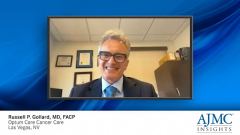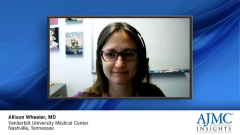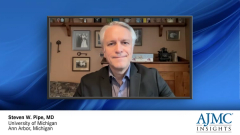
Enhancing Provider Access and Expertise for Rare Disease Care
Russell P. Gollard, MD, FACP, discusses ways to ensure access to appropriate treatment for rare diseases like hemophilia A, such as finding motivated providers with expertise and using utilization management strategies for cutting-edge care to bridge the gap between available community treatments and emerging therapies, ultimately benefiting patients.
Episodes in this series

Russell P. Gollard, MD, FACP: In working with providers, particularly with providers in the treatment of rare diseases, we need to do 2 things. First of all, we make absolutely sure that providers want to take care of these kinds of patients because it is a highly specialized area. Then we also make sure that these providers have the requisite level of expertise to provide care. Now, this is very important and easily accessible with the advent of the Internet, with a localized hemophilia treatment center, and in addition to that, many patients being their own greatest advocates, the ability of people to learn about their disease and then to be active participants and advocates for themselves and for others with their disease is great. I think getting motivated providers who will take care of these patients and then making certain that they know the resources that are available really makes sure we have the proper providers in our cadre to care for these individuals.
First of all, we want to make absolutely certain that what we are doing is providing cutting-edge treatment. I know that this is something of a given, but stated so anyway, it’s incredibly important to have providers that have both a scholarly and humanistic approach to disease. We don’t want people taking care of their disease or really any diseases that are just looking at things in terms of a task orientation. Keeping up on the journals, looking at their review courses, looking at the conventions like the American Society of Hematology convention, which takes place every December, is very important in terms of learning about the new modalities of health therapy out there. Now, in that there is oftentimes a gulf between what is available in the community and what might be in the process of development through a pharmaceutical company or through a study. We have to correct that discordance as much as possible and make sure that we are providing patients with the most up-to-date and most beneficial treatments for them. Given that this is a rare disease, it’s extremely important for the provider to have that scholarly approach. When you are writing for a medication before a surgery or get called to the emergency room or something like that, you should make absolutely certain that you are giving 2023-type treatment, not something that was given 20 years ago when one was in medical school.
Transcript is AI generated and reviewed by an AJMC editor.
Newsletter
Stay ahead of policy, cost, and value—subscribe to AJMC for expert insights at the intersection of clinical care and health economics.










